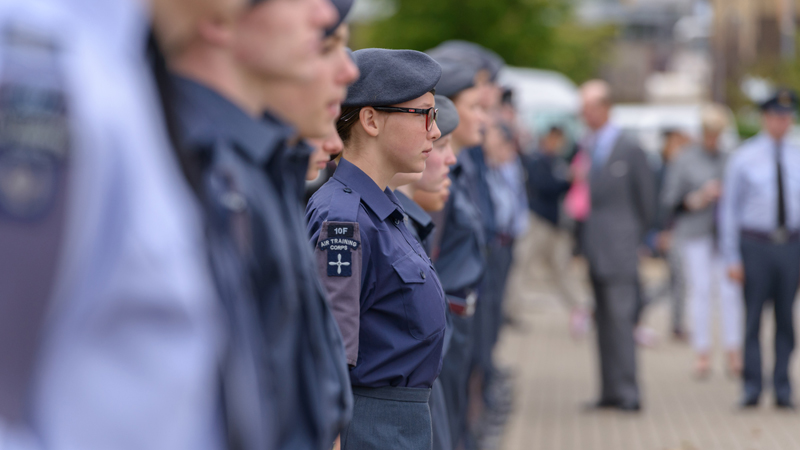Cranfield School of Management has been awarded a grant to fund research into what happens when women leave the Armed Forces and move to civilian employment.
Statistics suggest that women are less likely than their male counterparts to gain paid employment, and are more likely to be economically inactive.
Academics from the world-renowned business school have been given just under £100,000 from the Forces in Mind Trust, a grant-awarding body that helps ex-Service personnel and their families to successfully and sustainably transition to civilian life.
Their research aims to understand the reasons why women leave the Forces, identify why their outcomes are different to those of their male counterparts, and suggest how these differences might be addressed.
Emma Parry, Professor of Human Resource Management and Head of the School’s Changing World of Work group, said: “There is a lack of evidence about the employment outcomes for female Armed Forces leavers, but what data is available seems to suggest that women struggle more to obtain paid employment in civilian life. Through our research, we will endeavour to find out if this is the case, why it might be happening and what the Government, business and society can do about it.
“We are delighted to have been commissioned by the Forces in Mind Trust to carry out this important piece of work, and are looking forward to getting started.”
The award to Cranfield is the Forces in Mind Trust’s 100th grant award, and coincides with the 100th anniversary of women serving in the UK Armed Forces, which will be celebrated during 2018.
Cranfield and its research partner, the Institute for Employment Studies, were appointed to carry out the research following a competitive tender process. Their study will examine outcomes for both male and female Service leavers, and will also compare outcomes for female Service leavers to those for women in the labour market in general, looking at factors including employment, unemployment and inactivity rates.
Ray Lock, Chief Executive of Forces in Mind Trust, said: “It’s fantastic that, as we celebrate 100 years of women serving in the UK Armed Forces, our 100th grant award relates to gaining a better understanding of their outcomes post-service.
“Over the past five years, we have funded several pieces of research relating to employment outcomes – which can be a critical component of successful transition.”

About Cranfield University
Cranfield has been a world leader in management education and research for over 50 years, helping individuals and organisations learn and succeed by transforming knowledge into action. We are dedicated to creating responsible management thinking, improving business performance and inspiring the next generation of business leaders. We work to change the lives of our students and executives by encouraging innovation and creative thinking, as well as the drive to succeed and make a real impact on their organisations.
Organisations as diverse as Jaguar Land Rover, BAE Systems, Royal Dutch Shell, L’Oréal, UNICEF and the African Development Bank have benefited from our work, which ranges from management research projects, through staff talent management development on our MBA courses, to customised executive programmes.
Cranfield is one of an elite group of Schools worldwide to hold the triple accreditation of: AACSB International (the Association to Advance Collegiate Schools of Business), EQUIS (European Quality Improvement System) and AMBA (the Association of MBAs).
We are in the Top 10 International Business Schools in the Forbes’ ranking.
Our open and customised executive education programmes are ranked in the top five in the UK, according to the latest Financial Times survey, and in the top ten in the world for international reach. Over 10,000 people come to Cranfield each year to benefit from our executive and professional development programmes.
